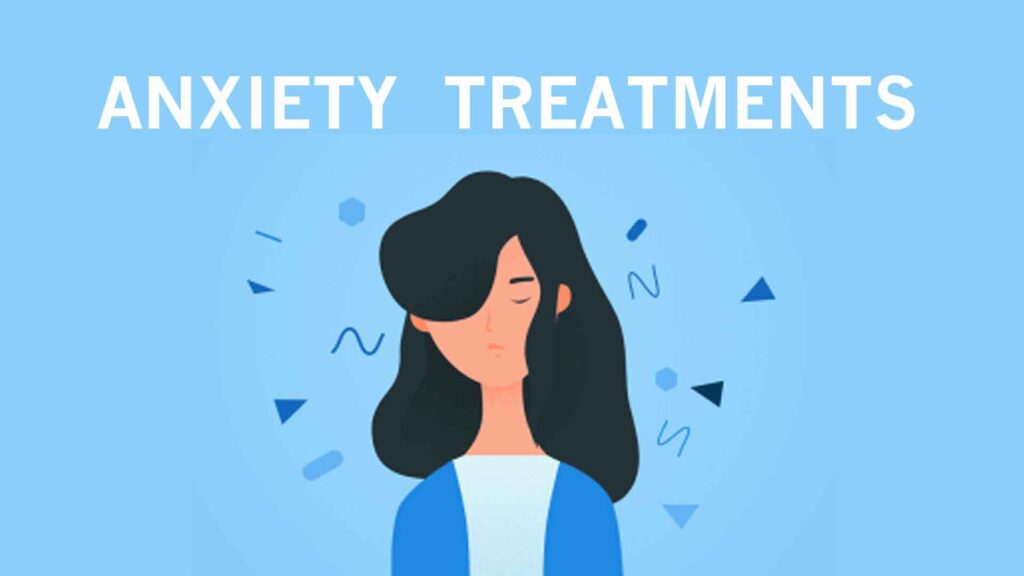WHAT IS ANXIETY?
Anxiety is the feeling of fear, dread, and discomfort. It may cause you to sweat, feel restless and tense, and have a rapid heartbeat. It could be a natural reaction to stress. For example, you may feel anxious when faced with a difficult problem at work, before taking a test, or prior to making an important decision. It could help you to cope. The anxiety might give you a boost of energy or help you focus. But for people with anxiety disorders, the fear is not temporary and could be overwhelming.
WHAT ARE ANXIETY DISORDERS?
Anxiety disorders are conditions in which you have anxiety that does not go away and can get worse over time. The symptoms can interfere with day-to-day activities such as job performance, schoolwork, and relationships.
WHAT ARE THE TYPES OF ANXIETY DISORDERS?
There are a number of types of anxiety disorders, like :
- Generalized anxiety disorder (GAD) – People with GAD worry about common problems such as health, money, work, and family. But their concerns are excessive, and they have them almost every day for at least six months.
- Panic disorder – People with the panic disorder go through panic attacks. These are unexpected, repeated periods of intense fear when there is no danger. The attacks come on quickly and could last several minutes or more.
- Phobias – People who have phobias have an intense fear of something that poses little or no actual danger. Their fear might be about spiders, flying, going to crowded places, or being in social situations (known as social anxiety).
WHAT CAUSES ANXIETY DISORDERS?
The cause of anxiety is not known. Factors such as genetics, brain biology and chemistry, stress, and your environment might play a role.
WHO IS AT RISK FOR ANXIETY DISORDERS?
The risk factors for the different types of anxiety disorders could vary. For example, GAD and phobias are more frequent in women, but social anxiety affects men and women equally. There are a few general risk factors for all types of anxiety disorders, including :
- Certain personality traits, like being shy or withdrawn when you are in new situations or meeting new people
- Traumatic events in early childhood or adulthood
- Family history of anxiety and other mental disorders
- Some physical health conditions, like thyroid problems or arrhythmia
WHAT ARE THE SYMPTOMS OF ANXIETY DISORDERS?
The different types of anxiety disorders could have different symptoms. But they all have the combination of :
- Anxious thoughts and beliefs that are difficult to control. They make you feel restless and tense and interfere with your everyday life. They do not go away and could get worse over time.
- Physical symptoms, such as a pounding or quick heartbeat, unexplained aches and pains, dizziness, and shortness of breath.
- Changes in behavior, such as avoiding daily activities you used to do.
Using caffeine, other substances, and certain medicines could make your symptoms worse.
HOW ARE ANXIETY DISORDERS DIAGNOSED?
To diagnose anxiety disorders, your health care provider will ask questions about your symptoms and medical history. You may also have a physical examination and laboratory tests to make sure that a different health problem is not the cause of your symptoms.
If you do not have another health problem, you will get a psychological evaluation. Your provider might do it, or you may be referred to a mental health professional to get one.
WHAT ARE THE TREATMENTS FOR ANXIETY DISORDERS?
The primary treatments for anxiety disorders are psychotherapy (talk therapy), medicines, or both :
- Cognitive behavioral therapy (CBT) is a type of psychotherapy that is usually used to treat anxiety disorders. CBT shows you different ways of thinking and behaving. It could help you change how you react to the things that cause you to feel fear and anxiety. It might include exposure therapy. This concentrates on having you confront your fears so that you will be able to do the things that you had been avoiding.
- Medicines to treat anxiety disorders include anti-anxiety medicines and specific antidepressants. Some types of medicines might work better for specific types of anxiety disorders. You should work closely with your health care provider to identify which medicine is best suited to your needs. You might need to try more than one medicine before you can find the right one.
If you or anyone you know is suffering from anxiety, our expert providers at Specialty Care Clinics will take care of your health and help you recover.
Call 469-545-9983 to book a telehealth appointment for an at-home check-up.




